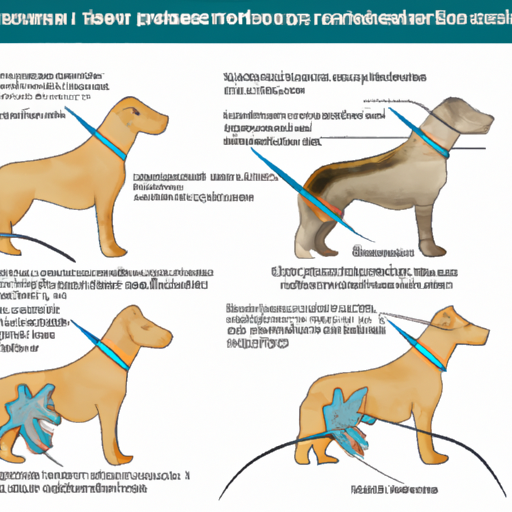As a caring and compassionate pet parent, it’s understandable that you would want to know everything that could potentially affect your dog’s health. Today, we’ll delve deep into a condition that, while rare, can cause significant distress for your furry friend – collapsed trachea in dogs.
Understanding Your Dog’s Trachea
Firstly, let’s get to grips with what the trachea is. Your dog’s trachea, or windpipe, is a tube made up of rings of cartilage. Its primary function is to carry air to and from the lungs. Now imagine if those rings were to weaken and flatten – that’s essentially what happens in a collapsed trachea.
Recognizing the Signs of a Collapsed Trachea
So how do you know if your dog is suffering from a collapsed trachea? The symptoms can vary but typically include:
- A persistent, harsh cough
- Difficulty breathing
- Exercise intolerance
- Blue gums
These symptoms can be distressing, both for you and your dog. But remember, a diagnosis from a vet is crucial for proper treatment.
Causes of a Collapsed Trachea
There are several factors that can contribute to a collapsed trachea in dogs:
- Age: Older dogs are more prone to this condition.
- Breed: Small breeds like Yorkshire Terriers and Pomeranians are more susceptible.
- Obesity: Excess weight can put undue pressure on the trachea.
- Leash Pulling: Using a collar instead of a harness can cause trauma to the trachea over time.
| Risk Factor | Description |
|---|---|
| Age | Older dogs are more prone to this condition. |
| Breed | Small breeds like Yorkshire Terriers and Pomeranians are more susceptible. |
| Obesity | Excess weight can put undue pressure on the trachea. |
| Leash Pulling | Using a collar instead of a harness can cause trauma to the trachea over time. |
Preventing and Treating a Collapsed Trachea
While some risk factors like age and breed are beyond our control, others can be managed to prevent or mitigate the effects of a collapsed trachea. These include:
- Keeping your dog at a healthy weight
- Using a harness instead of a collar
- Regular vet check-ups
Treatment varies depending on the severity of the condition and can include medication, lifestyle changes, and in severe cases, surgery.
Frequently Asked Questions
Q1: Can a collapsed trachea heal on its own?
A: No, a collapsed trachea requires medical intervention and cannot heal on its own.
Q2: Is a collapsed trachea painful for my dog?
A: It can be uncomfortable and cause difficulty in breathing, but it’s not typically painful.
Q3: Can my dog live a normal life with a collapsed trachea?
A: With proper treatment and management, your dog can live a comfortable life.
Remember, your vet is your best resource when it comes to the health and wellbeing of your pet. Don’t hesitate to reach out to them with any worries or concerns you may have. After all, you’re doing a fantastic job as a caregiver, and your dog is lucky to have you.



